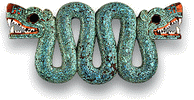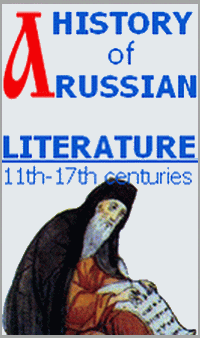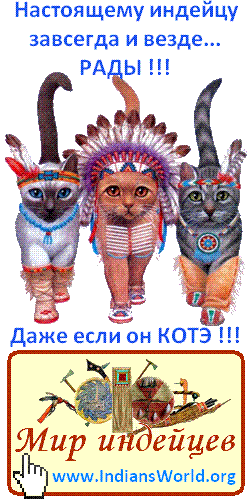THE WONDERFUL KETTLE
Category: TalesLong, long ago, when the world was new, two brothers lived in the forest far from all other people. The elder brother went to hunt, while the younger stayed at home, cooked the food and gathered wood for the fire.
One evening the tired hunter returned from the forest, and the younger brother took the game from him as usual and prepared it for supper.
“I shall smoke a little before I eat,” said the hunter, and he smoked in silence for a time and then lay down and fell asleep.
“Strange,” said the boy to himself. “Why didn’t he wait for the supper? Well, I’ll wake him up when it is ready.”
But when the hunter awoke and found that his brother had prepared the supper, he said:
“Eat, and go to bed. I want to be alone.”
The boy did as he was told, but he could not help asking himself how his brother could live if he did not eat. In the morning he noticed that the hunter had not eaten before he went away. The same thing happened on many other mornings and evenings.
“I shall watch him at night,” said the boy to himself, “because he must eat at night as he eats at no other time.”
In the evening when the boy was told as usual to go to bed, he lay down and pretended to be fast asleep, but all the time one of his eyes was open. He watched his brother and saw that in the middle of the night the hunter got up, went to the wall of the wigwam and took a small kettle from a hole in the earth. He scraped the bottom of the kettle, then filled it with water and set it on the fire. After that he struck the kettle with a whip, saying at every blow:
“Grow larger, my kettlet”
The kettle began to grow and soon it was larger than the largest kettle in the wigwam. Then the hunter took it off the fire and ate its contents with great pleasure. Thinking that he had seen enough, the younger brother fell asleep.
When the hunter went away next morning, the boy decided to find the kettle and see what his brother had eaten that night. The kettle was in the same place, but it was very small now and had only half a chestnut in it. The boy had never seen chestnuts before, so he tasted the bit that was left and soon ate it up. However, he was not troubled much because he thought that the kettle was a magic one and that chestnuts appeared in it when it was whipped. He decided to prepare a meal of chestnuts for his brother.
He thought that his brother would be pleased with him. In the evening he put the kettle on the fire, took a whip, and, striking the kettle many times, said at every blow: “Grow larger, my kettle!”
The kettle grew larger, but as the boy had struck it too many times, it kept on growing and soon filled all the wigwam. The boy had to run out of the wigwam and wait for his brother near the entrance.
When the hunter came back from the forest and saw his brother standing near the wigwam, he asked:
“What are you doing here? What is the matter?”
“I took your kettle to prepare supper for you,” answered the boy.
“Alas!” cried his brother. “My life is in danger!”
He quickly made the kettle grow small and took it off the fire. When he looked inside and saw that there was no chestnut meal in it, he turned sadly to the boy and said:
“See what you have done. Now I must die.”
The boy’s grief was so great that he could not sleep at night. In the morning he saw that his brother had remained at home and had not gone hunting as usual. Two days passed. The hunter ate nothing and lay on his bed of furs, sad and pale. He had lost all interest in life. Many times the boy asked him to tell where he could get some chestnuts, but the elder brother refused to answer, saying that it was too dangerous. Still the boy kept on asking, and at last hunter told him everything.
“There is only one place,” he said, “where you can get chestnuts. You must travel to the east a full day. Then you will reach a wide and swift river. On the opposite bank there stands a wigwam, and near it — a chestnut- tree. Even if you cross the river, it will be only the beginning of your difficulties. A white heron guards the tree. He is a very dangerous bird, but the six women-who live in the wigwam are still more dangerous. They kill everyone who dares to approach the tree. My dear brother, do not go there. If I must die, there is no reason why you should die too.”
But the boy did not listen to this warning. He felt that it was his duty to save his brother’s life. He made a little canoe out of birchbark and set off to the east. At the end of a day he came to the river. It was very wide indeed. Taking his little canoe from his pocket, he struck it with his hand and it at once became large enough to carry him across the river. In a few minutes-he reached the opposite bank, and there he saw the wigwam and the chestnut-tree. On his way he had gathered some berries which herons liked more than anything else. He hid In the bushes near the tree, and from behind them scattered the berries before the beautiful white bird which at once began to eat them. While the heron was busy with the berries, the bay crawled up to the tree and began to gather the chestnuts which were lying on the ground. He had gathered quite a lot of chestnuts before the heron noticed him. The bird gave a cry of warning and the boy started running to the river as fast as he could. The women rushed out of their wigwam and started after him. But before they could catch him, the boy reached the river, jumped into the canoe and pushed off. When the angry women ran up to the river, the eldest took her fishing-line and threw it so that the hook caught the canoe. But the boy cut the line with his knife. The same thing happened when the other women threw their lines. After that they could do nothing more and had to return to their wigwam.
At the end of the second day the boy was safely back at home with his bag of chestnuts. He found his brother still alive, but so weak that he could hardly speak. The boy quickly prepared a meal of chestnuts and made his brother eat it. Soon the hunter was better, and two days later he was quite well. Now he could eat meat again, and the boy decided to use the remaining chestnuts so that all the Indians could use them for food. He planted the chestnuts in different places, said some magic words and in the morning there were many chestnut-trees growing in the forest. Now nobody would die for the want of chestnuts.


